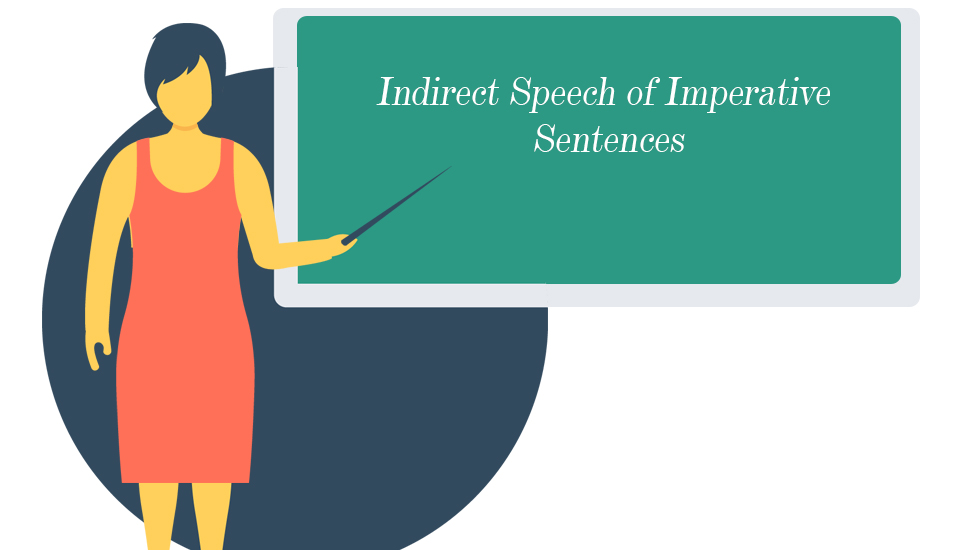
You might know that an imperative sentence expresses ideas such command, request, advice, suggestion, allowance etc. To change such sentences into indirect speech we use to-infinitive or that clause and instead of the reporting verb ‘said’ we use the following reporting verbs:
Advise, command, request, suggest, threaten, order, forbid, decree, propose, entreat, prompt, counsel, pardon, beg, persuade, instruct etc. Depending upon the nature of imperative sentence in reported speech.
Indirect Speech of Imperative Sentences
Direct speech: He said to me, “Leave India.”
Indirect speech: RP + to + Verb 1 + ROTS
- He told me to leave India.
- He ordered me to leave India.
- He advised me to leave India.
- He threatened me to leave India.
- He warned me to leave India.
- He informed me to leave India.
- He notified me to leave India.
- He begged me to leave India.
- He requested me to leave India.
Indirect Speech of Negative Imperatives
Direct speech: He said to me, “Don`t stay here anymore.”
Indirect speech: RP + not to + Verb1 + ROTS
- He ordered me not to stay there anymore.
- He advised me not to stay there anymore.
- He threatened me not to stay there anymore.
- He warned me not to stay there anymore.
- He informed me not to stay there anymore.
- He notified me not to stay there anymore.
Indirect Speech of Suggestions
- Direct speech: She said, “let`s watch a movie.”
- Indirect speech: She encouraged me to watch a movie with her.
- Direct speech: She said, “let`s eat out tonight.”
- Indirect speech: She suggested eating out that night.
- Direct speech: He said, “let`s sing a song together.”
- Indirect speech: He proposed that we should sing a song together.
Note: If the reporting verb is ‘suggested’ we use verb + ing or that clause not an infinitive.
Indirect Speech of Exclamatory sentences
- Direct speech: She said, “Wow! Pakistan won the cricket game.”
- Indirect speech: She was so excited about Pakistan winning the cricket game. Or
- She exclaimed with happiness that Pakistan had won the cricket game.
- Direct speech: He said, “Ops! Something went wrong with the internet.”
- Indirect speech: He exclaimed with sorrow that something had gone wrong with the internet.
Note: The verb forbid itself coveys a negative sense. Therefore, we don’t need to use not in indirect speech.
- Direct speech: I said to the students, ‘Do not make a noise.’
- Indirect speech: I forbade the students to make a noise. (Not I forbade the students no to make noise.)
IMPORTANT: In order to change an imperative sentence into indirect speech we choose the reporting verb according to the nature of imperative sentence in direct speech. Therefore, you have to be careful when choosing a reporting verb.
- The poor man said to me, ‘Please help me.’
- The poor man requested me to help him.
- The teacher said to the students,’ respect elders.’
- The teacher advised the students to respect elders.
- He said to the customer, ‘ come in, please.’
- He allowed/ asked the customer to come in.
- The policeman said to the prisoner,’ Do not fight in the prison.’
- The policeman warned the prisoner not to fight in the prison.

4 comments
Nice job
Thank you, Irshad Ali, hope it is helpful.
Thank u so much,this article really helped me 🙂
You are welcome Zaira and it assisted you a lot.